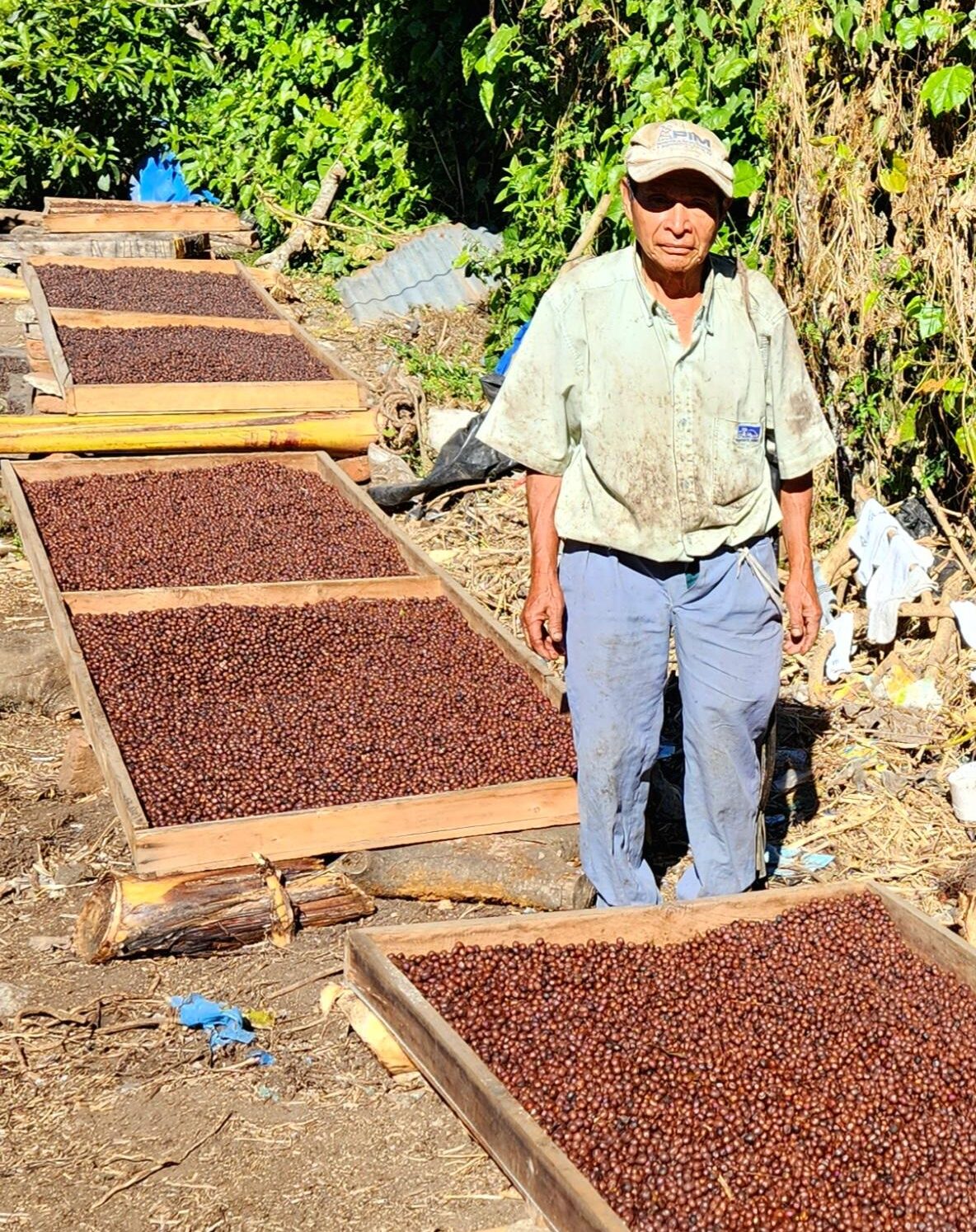Located in the volcanic region of San Salvador, in the El Balsamos mountain range, Miramar Farm had been neglected for many years until 2019, when Fernando Alfaro inherited it from his grandfather. But even in its abandoned state, it was home to a number of coffee trees of different varieties, including Bourbon and Typica.
The producer, Comercializadora Alfaro Diaz Nuila, is a legal society formed by Fernando Alfaro’s wife and his sons. As the legal representative, Fernando is responsible for running the agricultural and commercial activities of the farm. In 2019, Fernando’s family decided to revive the old trees by making sure the soil was nourished and healthy and improve the overall quality of the environment with the planting of new trees.



